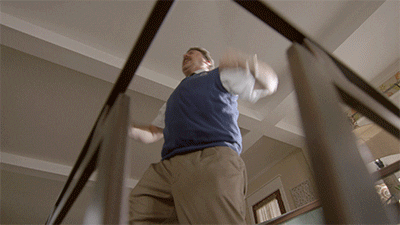Juan Miguel's Lesson
Make up exam reinforcement
He is going to study to be a lawyer.
It's cold. I will turn on the heating.
Look out! You're going to slip on the ice.
I'm afraid Kelly will lose her job.
We are going to employ seven new members of the staff this year.





Be going to
Subject + Verb to be (am, is, are) + going to + infinitive
- Future plans and intentions that we have decided.
- Predictions based on what we see or know (evidence).
I am going to visit my parents next weekend.

Will
Subject + Will / Won't + Infinitive
- General predictions about the future (what we believe or imagine).
- On the spot decisions (instant).
- Promises, threats, warnings, hopes, offers, intentions.
- Talk about the future when it is an objective truth.

It's my birthday next week. I'll be seventeen.
Reception opens at 8:00 am.
I am going to an interview tomorrow. They just phoned me.
The train leaves at 10.
They are having a party at the weekend.
Call me as soon as you arrive.
We are getting married next week.






Present continuous and simple
Future meanings:
- PC to talk about future arrangements or plans that have been confirmed.
- PS to talk about schedules or timetables.
- PS after time expressions like when, as soon as, until, after.

Simple
Horarios, programas o itinerarios - No dependen de nosotros.
Continuous
Planes e intenciones decididas con intención personal - Si depende de nosotros.
Question tags
- Turn the statements into questions.
- To confirm something that we believe to be true.
- To invite the listener to agree or disagree with a statement.
- Si la oración es positiva, la tag es negativa (+ / - ).
- Si la oración es negativa, la tag es positiva (- / + ).

You like pizza, don’t you?
You are playing Minecraft, aren’t you?
We will have fun at the party, won’t we?
He didn’t bring his notebook, did he?
She shouldn’t eat so much candy, should she?
He doesn’t like spiders, does he?






Shorter action (past simple)
Longer action (past continuous)
The children were shouting when the teacher came in.

She watched a movie last night.

She was watching TV when I called her.

When the fire started I was cooking a pie.

It was snowing yesterday.

I was playing Minecraft when my dad called me for dinner.

Simple
Continuous
- An action which started and finished in the past.
- Actions which happened one after the other in the past.
- Stated time in the past.
- On going past action (often interrupted).
- Actions in progress (not finished).
- Two or more actions which were happening at the same time in the past.
Conditional clauses
Consist of two parts: the if-clause (hypothesis) and the main clause (result).
When the if-clause comes before the main clause, the two clauses are separated with a comma (,).
When the main clause comes before the if-clause NO comma (,) is needed.

If dogs had wings, they would be able to fly.
If I lived in Spain, I would visit Barcelona.
If I were you, I would drive more carefully in the rain.
If I won the lottery, I would take a trip around the world.




Second conditional
1. To imaginary or improbable situations.
2. To ask hypothetical questions.
3. To give advice.
4. To give reasons why.

Structure
If + Past simple + (,) + Would/Wouldn't + V. infinitive
Would/Wouldn't + V. infinitive + If + Past simple

Cuando expresamos lo improbable usamos would, no el past simple.
Active voice
The teacher corrects the english test.
Passive voice
The english test is corrected by the teacher.
Menciona QUIÉN hace la acción
Menciona CUÁL fue la acción
The animals are fed every morning.
Harry Potter was written by J.K. Rowling.
The test was given yesterday by the teacher.
Pizza is made with cheese.
The cake was baked by my mom.
The homework is done every day.






Passive voice
We use the passive voice when:
- We are more interested in the action than in the people who do the action.
- We don't know who exactly do the action.
- It is obvious or understood who did the action.
Subject + Verb to BE + V. Past Participle